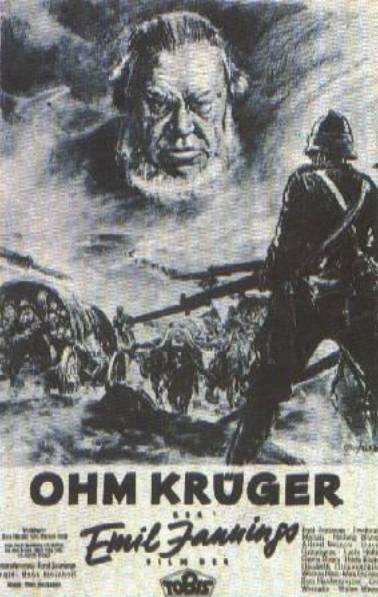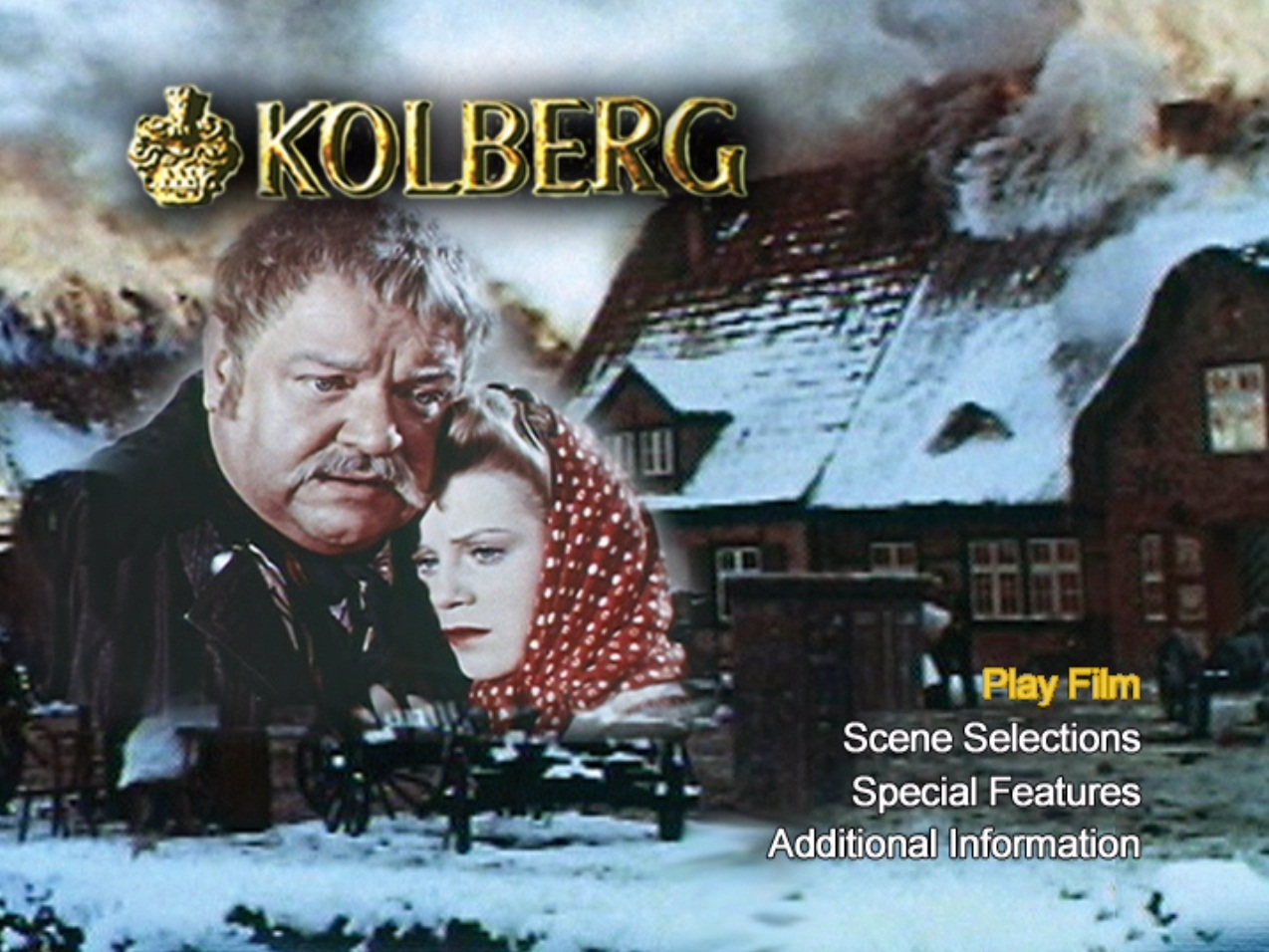
[---][center]
[large]Kolberg[/large][/center][---]
Kolberg - VOSTFR 1945.flv (269.6 MB)
https://mega.co.nz/#!dtlTWDRZ!Ki0BSzV6u ... umkD4IUw4g
Kolberg DVD 1945
KOLBERG.ISO (4.24 GB)
http://thepiratebay.org/torrent/5362286 ... C.DVDR-99T

[justify]Kolberg est un film nazie, mis en scène par Veit Harlan et Wolfgang Liebeneiner, alors que le troisième reich vivait ses derniers mois. Il a été inauguré le 30 janvier 1945, simultanément à Berlin et dans la poche de La Rochelle. Il a été aussi projeté à la chancellerie du Reich après l'émission du dernier message radio d'Hitler le 30 janvier. La musique du film est de Norbert Schultze. Le film visait à galvaniser le moral des Allemands au cours de la dernière phase de la Seconde Guerre mondiale. Il se fonde sur l'autobiographie de Joachim Nettelbeck, maire de Kolberg, qui avait raconté comment la forteresse de la ville s?était défendue avec succès (en) en 1807 contre les troupes françaises, à la fin de la guerre de la quatrième coalition. Le maire avait réussi à transformer la population locale en une milice efficace et fanatique, malgré le pessimisme des autorités militaires sur place. C?est alors qu?un officier, le comte August von Gneisenau, qui devait devenir le feld-maréchal prussien réformateur que l?on connaît, avait remplacé le commandant militaire et, de concert avec Nettelbeck, avait tout fait pour conserver la ville au roi de Prusse.[/justify]
[justify]Le leitmotiv du film : "das Volk steht auf, der Sturm bricht los" (le peuple se lève, la tempête se déchaîne) reprend directement l'un des slogans de la propagande de Goebbels. Celui-ci voulait croire contre toute évidence à un sursaut du peuple pour sauver le régime hitlérien du naufrage. Les enfants, les femmes et les personnes âgées embrigadées dans le Volkssturm devaient y trouver un exemple Kolberg, commencé en 1943, a été tourné en Agfacolor et a coûté plus de huit millions de Marks, ce fut le film le plus cher de l'époque nazie. Des milliers de soldats y furent employés, en les faisant venir à grands frais d?où ils étaient. Pour les scènes de film tournées en été et qui devaient montrer de la neige, 100 wagons apportèrent du sel sur place. Le film fut définitivement terminé aux Studios de Babelsberg, à Potsdam, tandis que la ville voisine de Berlin était la proie des bombardements.Le film fut projeté à Berlin dans un cinéma de fortune et, jusqu'à la chute de la ville, en mai 1945, les représentations se firent sous la menace des attaques aériennes ; le film vint beaucoup trop tard pour atteindre l'effet de propagande souhaité. Beaucoup de salles de spectacle partout en l'Allemagne avaient déjà été détruites.
Le film disparaît des écrans après la capitulation du Troisième Reich. Il réapparaît en 1965, à travers un documentaire réalisé par Lothar Kompatzki intitulé L'affaire Kolberg. Le film original est entrecoupé de bandes d'actualités contemporaines sur la fin de la guerre, afin de mettre en évidence la façon dont l'histoire avait été elle aussi mobilisée pour la propagande.
En 1998, Kolberg a été diffusé par Arte dans une version restaurée numériquement. Aujourd'hui, sans référence historique à l'époque du tournage, ce film disponible en DVD apparaît comme une reconstitution patriotique plutôt classique dans son formalisme, pouvant se transposer à n'importe quelle époque de l'histoire européenne du XIXe siècle.[/justify]
[center]
Kristina Söderbaum : Maria Werner
Heinrich George : Joachim Nettelbeck
Horst Caspar : Le comte von Gneisenau
Gustav Diessl : Ferdinand von Schill
Paul Wegener : Le colonel von Loucadou
Kurt Meisel : Claus Werner
Otto Wernicke : Le fermier Werner
Irene von Meyendorff : La reine Louise de Prusse
Claus Clausen : le roi Frédéric-Guillaume III[/center]
[---]
[justify]One of the Third Reich?s most ambitious spectaculars, three years in the making, mobilized Germany?s most talented artists and thousands of extras to re-create the true story of a Prussian town?s rebellion against Napoleon?s army of occupation. Laced with anti-Christian symbolism and National Socialist ideology, the film is a mirror of Hitler Germany?s own war for survival. In its characterization of Kolberg?s besieged citizenry, the epic allegorically reflects the spirit of fanatical resolve to fight on, that Nazi propaganda was attempting to instill in the German population during the final years of World War II.[/justify]
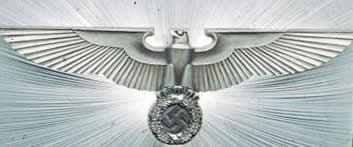 [right]Voir aussi :
[right]Voir aussi :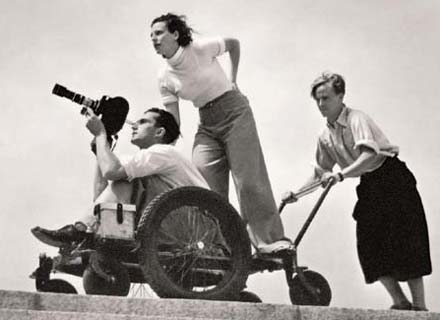
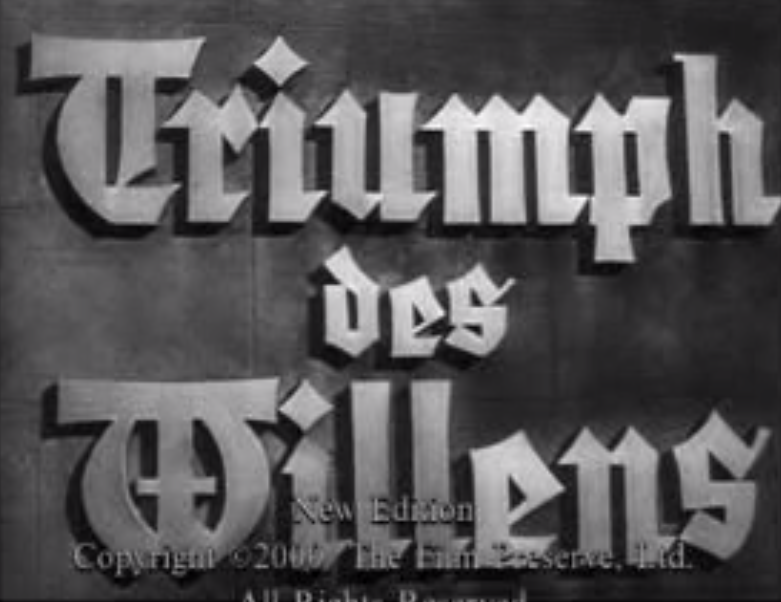 [/center]
[/center]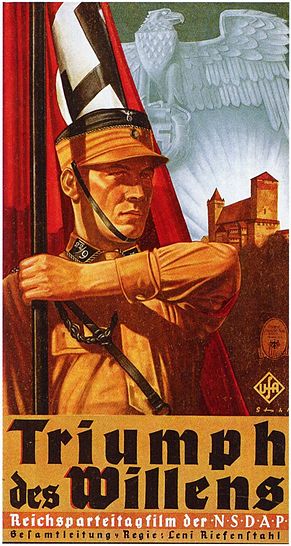 [/center]
[/center]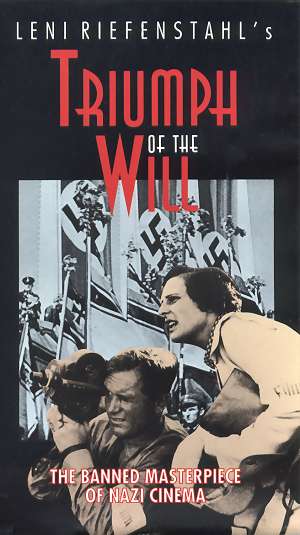
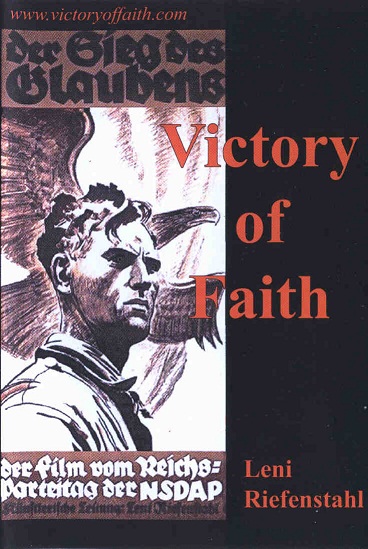 [---][center]
[---][center]
 [justify]Kolberg est un film nazie, mis en scène par Veit Harlan et Wolfgang Liebeneiner, alors que le troisième reich vivait ses derniers mois. Il a été inauguré le 30 janvier 1945, simultanément à Berlin et dans la poche de La Rochelle. Il a été aussi projeté à la chancellerie du Reich après l'émission du dernier message radio d'Hitler le 30 janvier. La musique du film est de Norbert Schultze. Le film visait à galvaniser le moral des Allemands au cours de la dernière phase de la Seconde Guerre mondiale. Il se fonde sur l'autobiographie de Joachim Nettelbeck, maire de Kolberg, qui avait raconté comment la forteresse de la ville s?était défendue avec succès (en) en 1807 contre les troupes françaises, à la fin de la guerre de la quatrième coalition. Le maire avait réussi à transformer la population locale en une milice efficace et fanatique, malgré le pessimisme des autorités militaires sur place. C?est alors qu?un officier, le comte August von Gneisenau, qui devait devenir le feld-maréchal prussien réformateur que l?on connaît, avait remplacé le commandant militaire et, de concert avec Nettelbeck, avait tout fait pour conserver la ville au roi de Prusse.[/justify]
[justify]Kolberg est un film nazie, mis en scène par Veit Harlan et Wolfgang Liebeneiner, alors que le troisième reich vivait ses derniers mois. Il a été inauguré le 30 janvier 1945, simultanément à Berlin et dans la poche de La Rochelle. Il a été aussi projeté à la chancellerie du Reich après l'émission du dernier message radio d'Hitler le 30 janvier. La musique du film est de Norbert Schultze. Le film visait à galvaniser le moral des Allemands au cours de la dernière phase de la Seconde Guerre mondiale. Il se fonde sur l'autobiographie de Joachim Nettelbeck, maire de Kolberg, qui avait raconté comment la forteresse de la ville s?était défendue avec succès (en) en 1807 contre les troupes françaises, à la fin de la guerre de la quatrième coalition. Le maire avait réussi à transformer la population locale en une milice efficace et fanatique, malgré le pessimisme des autorités militaires sur place. C?est alors qu?un officier, le comte August von Gneisenau, qui devait devenir le feld-maréchal prussien réformateur que l?on connaît, avait remplacé le commandant militaire et, de concert avec Nettelbeck, avait tout fait pour conserver la ville au roi de Prusse.[/justify]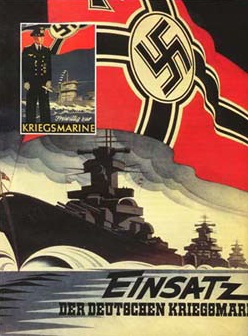


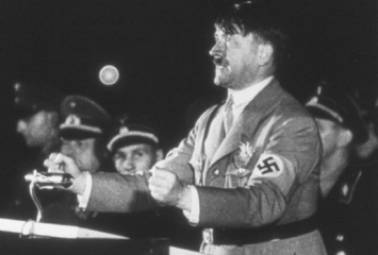
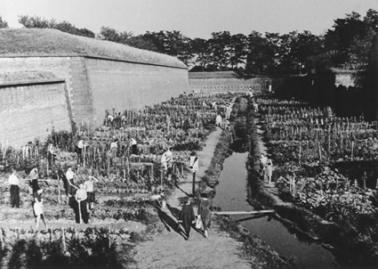 [---][center]
[---][center] [---][center]
[---][center]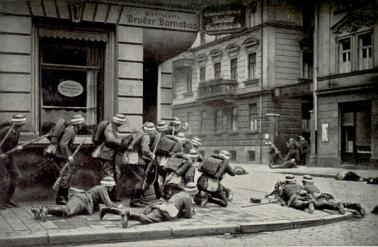
 [---][center]
[---][center]
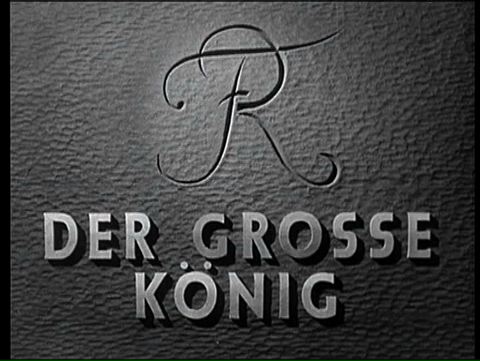 [/center]
[/center]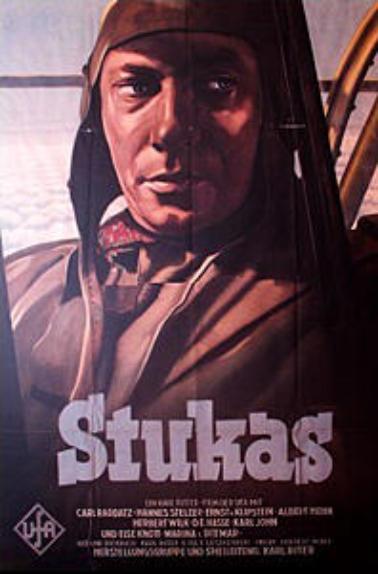
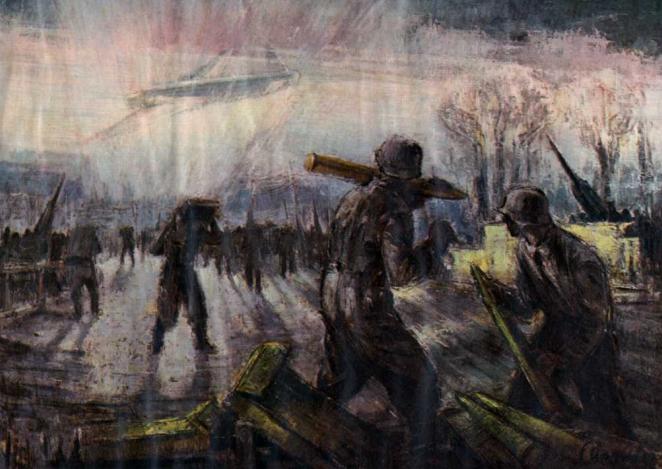
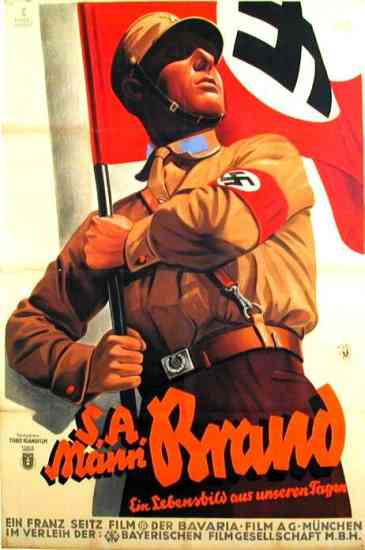
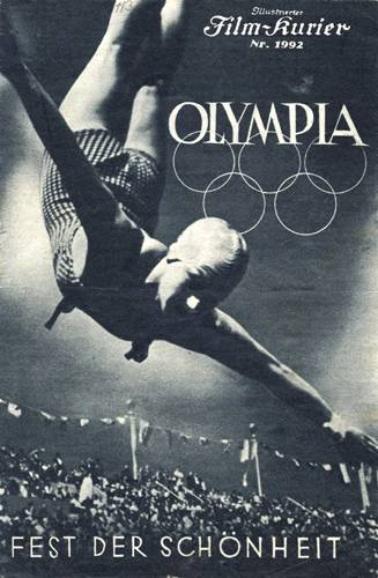 [justify]Olympia is a 1938 film by Leni Riefenstahl documenting the 1936 Summer Olympics, held in the Olympic Stadium in Berlin. The movie was produced in two parts: Olympia 1. Teil - Fest der Völker (Festival of Peoples) and Olympia 2. Teil - Fest der Schönheit (Festival of Beauty). Commissioned by the International Olympic Committee, it was the first documentary film on the Olympic Games ever made.
[justify]Olympia is a 1938 film by Leni Riefenstahl documenting the 1936 Summer Olympics, held in the Olympic Stadium in Berlin. The movie was produced in two parts: Olympia 1. Teil - Fest der Völker (Festival of Peoples) and Olympia 2. Teil - Fest der Schönheit (Festival of Beauty). Commissioned by the International Olympic Committee, it was the first documentary film on the Olympic Games ever made.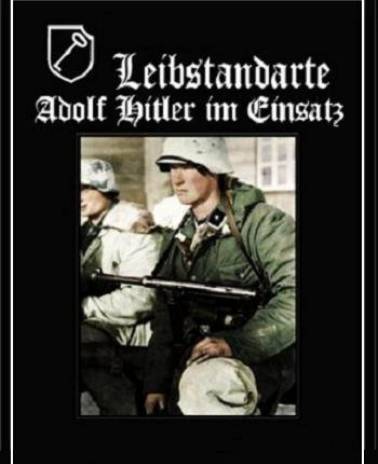 [center][large]Leibstandarte SS Adolf Hitler in Action[/large][/center]
[center][large]Leibstandarte SS Adolf Hitler in Action[/large][/center]